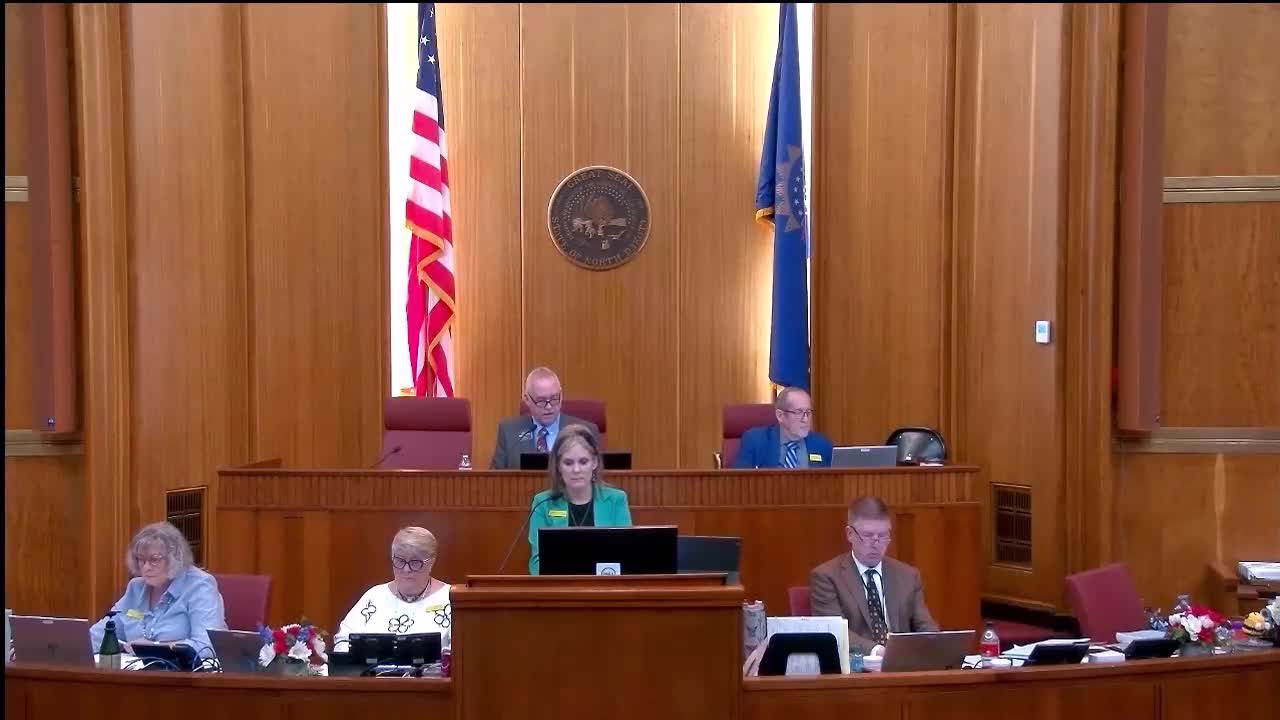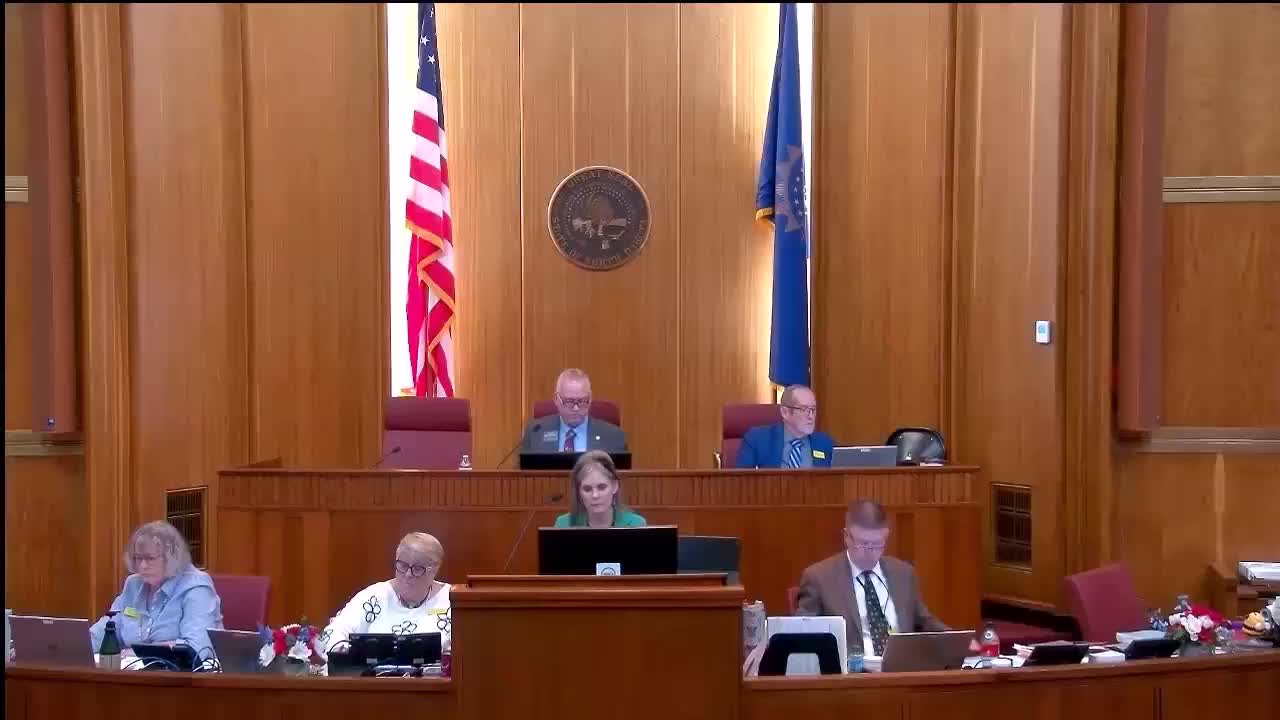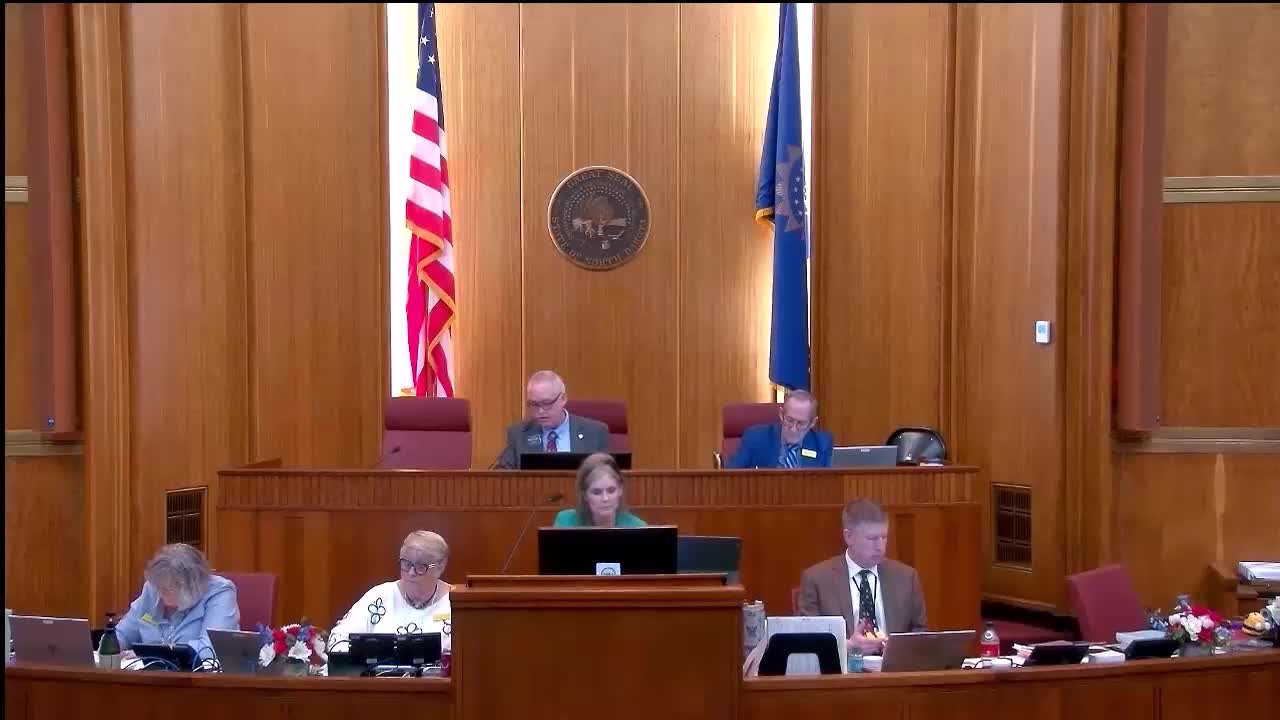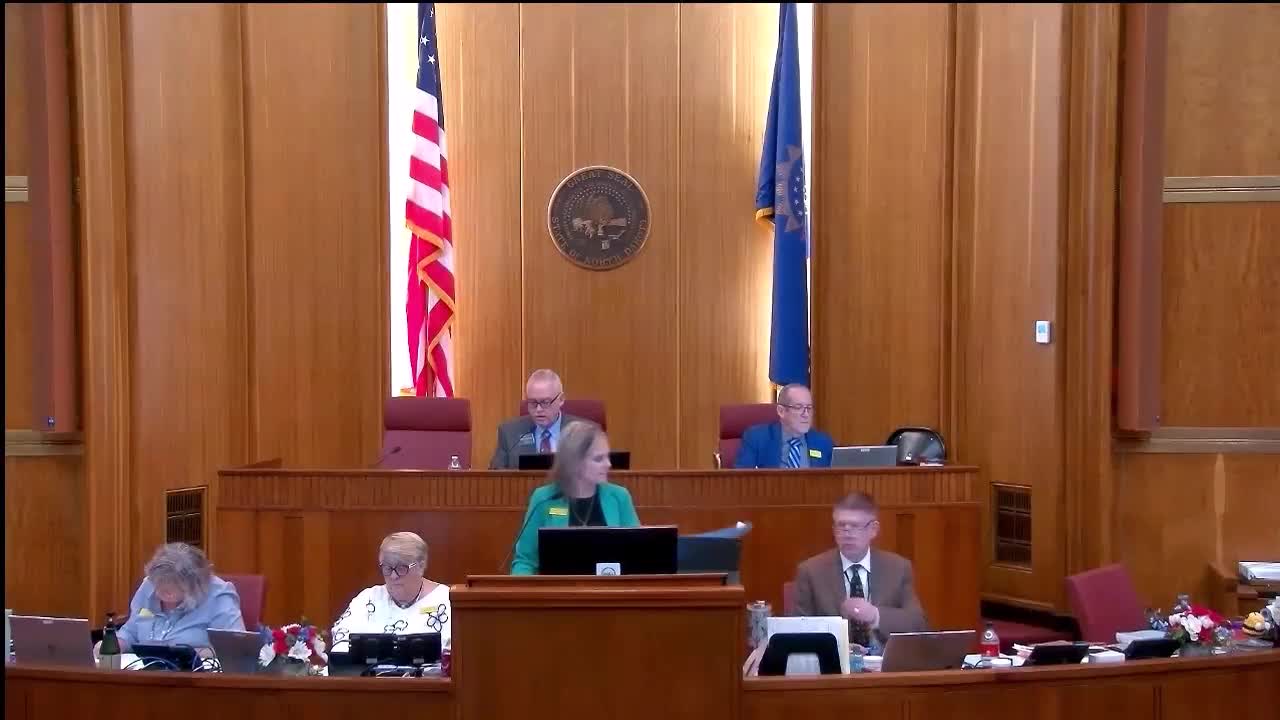Article not found
This article is no longer available. But don't worry—we've gathered other articles that discuss the same topic.

Senate approves House Bill 14-97 to expand local flexibility for 4‑year‑old pre-K eligibility; close vote 28-19

Senate rejects concurrent-resolution proposal to request study of native grasses and planting practices

Senate adds nuclear waste storage to study of advanced nuclear energy, re-refers bill to Appropriations

Senate amends House Bill 12-25 to narrow "other dangerous weapons" language, refers to appropriations panel

